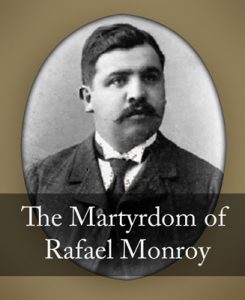Martyrdom in Mexico
The following account was written by Rey L. Pratt, President of the Mexican Mission, and published in the Improvement Era in 1918. The account has been lightly edited for readability. The spelling and grammar have been modernized. It is republished here to commemorate the 100th anniversary of the death of Rafael Monroy, one of the brave Mormon martyrs.
Unrest in Mexico
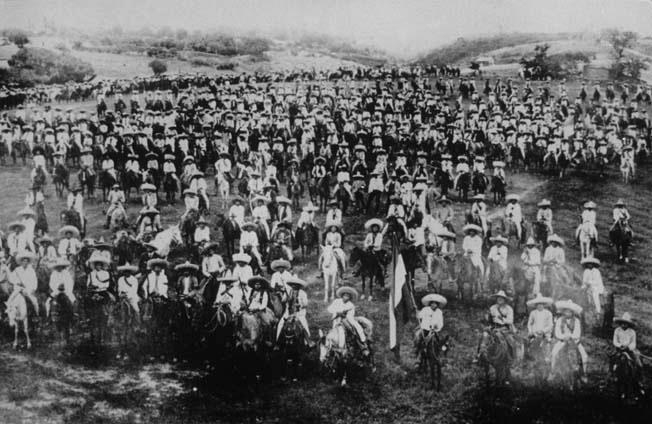
For three years, civil war had raged in Mexico. Madero’s revolution had triumphed over the dictator, Diaz, only in turn to be overthrown by the military defection.
Victoriano Huerta ruthlessly murdered President Madero, placed himself in the presidential chair, and made himself dictator of Mexico.
The United States did not recognize the usurper Huerta. John Lind, President Wilson’s special representative in Mexico, left the capital. The American embassy advised all Americans to leave the country. Anti-American feeling ran high, and there was every indication that there would be war between the two nations.
The little band of missionaries still left was called into the Mission office in Mexico City. It was decided to leave the country until conditions became more settled.
Letters were written to the native branch presidents throughout the mission advising them of the resolution to abandon the field for a time and instructing them how to manage the affairs of their respective branches.
Mission belongings were packed and stored, and everything was ready for the departure of all the missionaries on the evening train for Vera Cruz.
Abandoned Saints
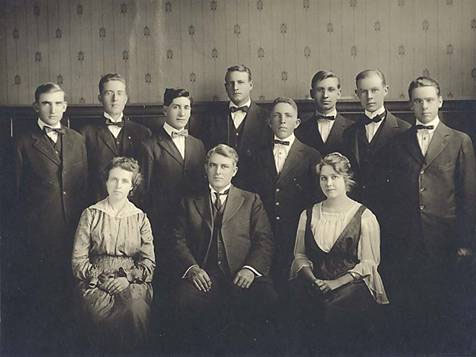
About 3 pm, a young man, Brother Rafael Monroy–a convert of but three months–stopped into the almost dismantled Mission office and said,
“President Pratt, words cannot convey to you my sorrow and that of my family at the thought of yourself and the elders having to leave us. We are as children in our knowledge of the gospel. We are new in the faith, and where we live there is no branch. What can we do when we are left to ourselves?”
“Take this seat,” I replied, handing him a chair, “and we will confer upon you the Melchizedek priesthood, and set you apart as branch president over the few Saints who live where you do. You will then go back and preside over them, teach them the gospel, and if you are faithful and humble before the Lord, He will bless you with power and great wisdom in the performance of your duties.”
In all humility, the young man received the ordination and calling as branch president.
A few hours later the missionaries all left Mexico City. Brother Rafael bade them farewell at the station and the next day returned to his home in the little town of San Marcos. There were seven baptized members of the Church in this place and the same number of earnest investigators.
The San Marcos Branch Prospers
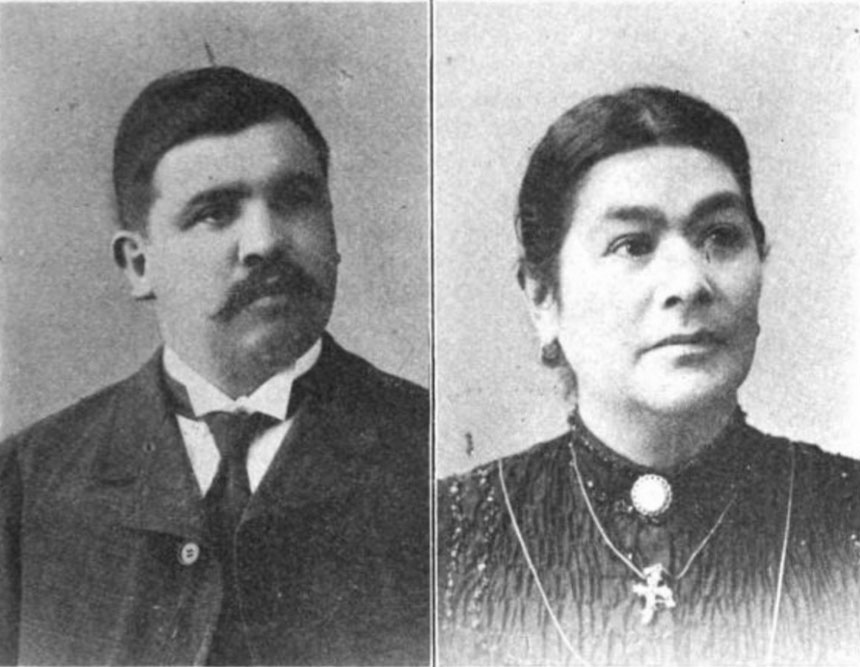
Trusting in the promise of the Lord to him, Brother Rafael gathered them together and told them what had been done and that he had been called to preside over them.
After this, regular meetings and Sunday Schools were held every Sunday and once during the week.
The blessings of the Lord rested upon this little branch and the noble young man called to preside over it. Through his humble and efficient labors, the number who attended the meetings increased within a year from about fifteen to more than seventy-five.
The little town of San Marcos was situated in a part of the country where, during the first few years of the struggle in Mexico, the horrors of war did not enter. But the revolution, like a devastating fire, burned its way into and over even the most secret recesses of the land. In its wake remained little but its blackened trail and the charred and ruined walls of what once were homes.
So it was that in May 1915, this small town found itself on the firing line between the hordes of the Zapatistas on the south, and the advancing army Carranzistas, on the north.
For three months, the battle raged between the contending forces, with the town back and forth between the hands of the Zapatistas and the hands of the Carranzistas.
Our little band of Saints nobly struggled on in the midst of all this, without taking part on either side. They held their meetings and Sunday Schools many times, even while battles were being fought and bullets were flying over the house during services.
The Branch is Attacked
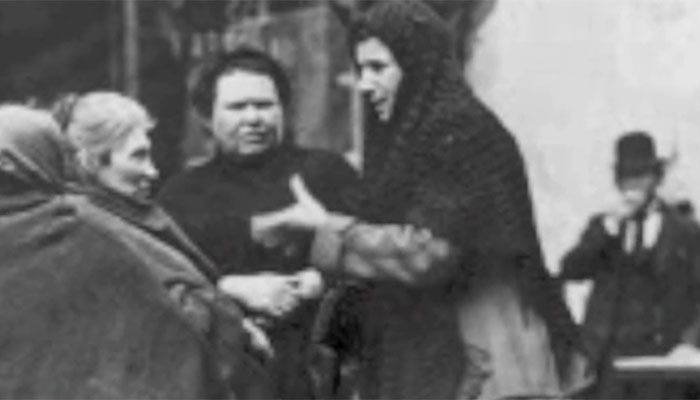
Devotion to their faith hand won them many friends, but, as is always the case where truth is established, Satan put hatred into the hearts of some of the people against them. Among these was a neighbor of Brother Rafael, who had it in his heart to hate and destroy those who professed a different faith.
On July 17, after a battle of several hours, San Marcos was taken by the Zapatistas. The neighbor saw his opportunity to strike a fatal blow. He told the Zapatistas, that Rafael was a colonel for the Carranzistas and the leader of the “Mormons,” those in the little village who professed a strange religion. He told them that Rafael was perverting the people and leading them off to other gods.
The Zapatistas are intensely fanatic and fight their battles in the name of the Virgin of Guadalupe, vowing the destruction of all who oppose her. So Brother Rafael, soon after the Zapatistas entrance into the town, found his home surrounded by an armed troop of men.
He and Brother Vicente Morales (his counselor in the branch presidency), who was there with him, were placed under arrest. The Zapatistas demanded that they give up their weapons, but Brother Rafael, confident in the fact that he had no weapons, simply drew from his pocket his Bible and his Book of Mormon and said,
“Gentlemen, these are the only arms I ever carry; they are the arms of truth against error.”
His answer infuriated the mob. He and his companion were now held securely while his house and belongings were searched for the weapons they believed were hidden there. But no weapons were found, so Brothers Rafael Vicente were submitted to all kinds of torture in an endeavor to make them divulge where they hid the weapons.
At last ropes were placed around their necks and thrown over the limbs of a tree. Before the knots were tightened, they were told that if they would forsake their strange religion and join the Zapatistas they would be freed. But Brother Rafael replied,
“My religion is dearer to me than my life and I cannot forsake it.”
At this, they were raised from the ground by the ropes around their necks and suspended in the air until they were unconscious. But their tormentors were not ready to see them die, so they let them down and revived them.
A Final Day
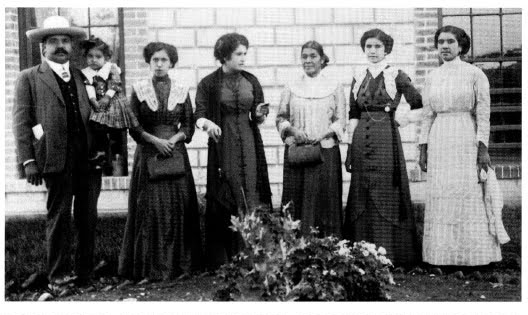
At this stage, Brother Rafael’s three sisters, at their own peril, went to the commander of the Zapatistas to intercede for their brother and Vicente. But their tears and prayers were vain. They were also taken prisoner and thrown into a room under heavy guard.
This was about 10 am. Some time later, after all cruel attempts at torture failed to make Brothers Rafael and Vicente divulge the hiding place of weapons they did not have, and forsake the gospel they held dearer than life, they were taken to the same room where the sisters were held.
As best he could, Brother Rafael comforted his sisters and told them to trust in the Lord and all would be well. He asked for water and bathed his hands and face and the chafed neck where the hangman’s cruel rope had nearly strangled his life out.
He then drew from his pocket his Bible and Book of Mormon and occupied the remainder of the afternoon reading the scriptures and explaining the gospel to his guards and fellow prisoners.
All day long the poor distracted mother went from one office to another protesting that her children were innocent of any crime and begging for their release, but it was without avail. It was not until about 7 pm that she was even permitted to take them any food. She was not permitted to take it into them, nor see them, but had to send it in by a guard.
The grief and fear of the sisters were greater than their desire for food, but under the consoling and encouraging words of Brother Rafael, they were persuaded to spread out their little meal and prepare to partake of it.
When all was arranged, Brother Rafael asked for the attention of the rest of the prisoners, and permission from the guards to ask a blessing on the food. In a voice that all could hear, he thanked God for it and for all his blessings. Then in a quiet way to his sisters he said, “Partake of the food, but I will not. I am fasting today.
A few moments later an orderly came in and called for Rafael Monroy and Vicente Morales and commanded them to follow him.
By this time, it was getting dark, and they were led under guard to the outskirts of the little town. They were lined up by a large ash tree in front of a firing squad. The officer in charge again offered to them their freedom if they would forsake their strange religion and join the Zapatistas, but the brethren, as firmly as before, replied that their religion was dearer than life, and that they would not forsake it.
They were then told that they were to be shot and asked if they had any request to make. Brother Rafael requested that he be permitted to pray before he was executed.
There in the presence of his executioners, he kneeled and in a voice that all could hear prayed to God to bless and protect his loved ones and to care for the little struggling branch that would be left without a leader.
As he finished his prayer, he used the words of the Savior when he hung upon the cross and prayed for his executioners, “Father, forgive them, for they know not what they do.”
Not once did he pray that his own life might be spared. When his prayer was finished he stood up, folded his arms, and said, “Gentlemen, I am at your service.”
Six rifles rang out on the night air and echoed to the sisters waiting in the little prison room, to the mother, and to the wife waiting in despair in their little home, conveying to them the knowledge that Rafael and Vicente had given up their lives, martyrs to the cause that they loved more than their lives!
The Legacy of Rafael Monroy
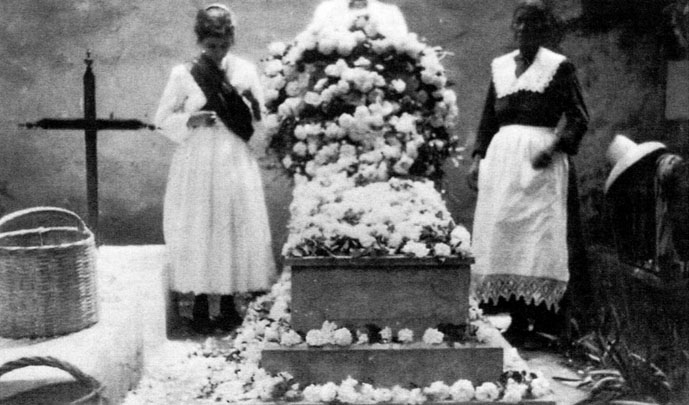
The circumstances attending the execution were told to the family afterwards by a soldier who witnessed them, and he said that in all his experience he never saw men die with greater courage, nor had he ever heard such a prayer as that offered by Brother Rafael.
As if in grief over the great tragedy, and in an effort to wash the Earth clean of the stains of innocent blood, a tropical storm broke over the little village, and the rain came down in torrents.
Out into the darkness, and in the face of the storm, the heart-broken mother of Brother Rafael went to find the body of her dear, dead son. In recounting it afterwards, she said, “Surely the Lord was with me and strengthened me that night, for I, who had many times fainted at the sight of blood was able to keep watch over my boy until daylight came.”
The following morning, orders were given to arrest and execute any man who attempted to move the bodies of the two murdered brethren.
There was nothing left for the grief-stricken mother, wife and sisters to do but remove the bodies and bury them as best as they could. They improvised a stretcher and carried them half a mile home, and with their own hands prepared them for burial, and buried them.
No doubt the perpetrators of this crime thought that with the death of the leader the strange religion in their midst would come to an end. But such was not the case, for the little branch has not only survived but has grown since, and the faith of its members is stronger than ever.
In the 1970s, the Church produced a film about Rafael Monroy in Spanish. Below is the completed film.
James E. Faust recounted the story of Rafael Monroy in General Conference October 2006
BYU Studies published an in-depth research study on the events surrounding Monroy’s death.
